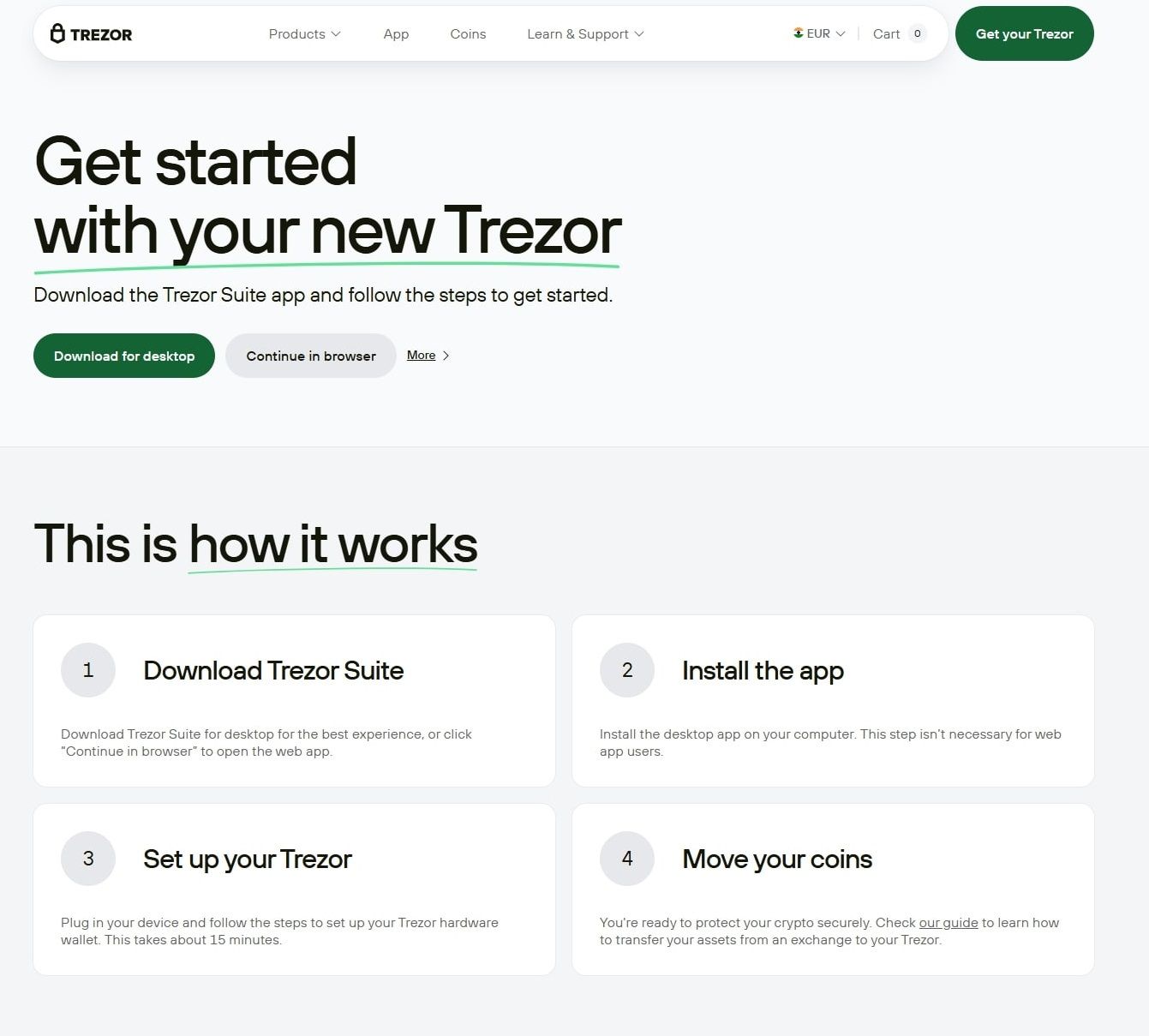Trezor Bridge: The Essential Connector for Your Hardware Wallet
Managing cryptocurrencies safely is more important than ever, and hardware wallets like Trezor offer top-tier security. But behind the secure and user-friendly experience lies a powerful tool that connects your wallet to your computer: Trezor Bridge. If you're looking to understand what it is, why it matters, and how to set it up—this guide has everything you need.
What is Trezor Bridge?
Trezor Bridge is a background software that creates a secure communication path between your Trezor hardware wallet and your browser. Instead of relying on browser plug-ins or extensions, Bridge facilitates encrypted data transfer when accessing Trezor Suite or web-based wallet interfaces.
In simple terms, if Trezor is the vault that stores your crypto securely, Trezor Bridge is the tunnel that allows you to access that vault without opening it to the public. It ensures that your computer and your Trezor wallet can talk securely—without relying on third-party tools or vulnerable scripts.
Why is Trezor Bridge Important?
Without Trezor Bridge, your browser often can't detect your Trezor device. That means you won’t be able to log into Trezor Suite or approve transactions securely. It is a necessary part of the connection chain if you're not using WebUSB (another browser-based connection method that only works with certain browsers).
Here’s what Trezor Bridge helps with:
- Recognizing your device when plugged in
- Allowing access to Trezor Suite desktop and browser
- Enabling transaction approvals and crypto transfers
- Supporting firmware updates and security checks
How to Install Trezor Bridge (Step-by-Step)
Getting started with Trezor Bridge is easy and takes just a few minutes. Here’s how:
- Go to the Official Website Visit https://trezor.io/bridge and download the software for your system.
- Select Your Operating System Choose between Windows, macOS, or Linux, depending on your computer.
- Install the Software Run the downloaded installer and follow on-screen prompts to complete the setup.
- Restart Your Browser After installation, close and reopen your browser to activate Trezor Bridge.
- Connect Your Trezor Device Plug in your Trezor wallet, open Trezor Suite, and you should now have a fully functional and secure connection.
Once installed, Trezor Bridge runs quietly in the background and starts automatically when you connect your device.
Top Features of Trezor Bridge
Trezor Bridge might be simple, but it’s incredibly powerful:
- Secure Communication: End-to-end encryption between device and browser
- Seamless Compatibility: Works with Chrome, Firefox, Brave, and more
- Essential for Trezor Suite: Ensures smooth access and transaction processing
- Automatic Updates: Keeps the software secure and up-to-date
- Lightweight Performance: Consumes minimal system resources
Troubleshooting Common Issues
If you experience any problems using Trezor Bridge, here are a few quick solutions:
- Device Not Detected: Make sure Trezor Bridge is installed and running. Try a different USB port or cable.
- Web Interface Not Loading: Restart the browser or use an incognito tab to bypass cache issues.
- Software Conflict: Disable conflicting extensions like MetaMask during setup or use a different browser.
- Outdated Version: Always check for the latest version on the official site and reinstall if needed.
Trezor Bridge vs WebUSB: Which Should You Use?
Trezor supports both Bridge and WebUSB. WebUSB allows direct browser-to-device communication without needing Bridge, but it's limited to certain browsers like Google Chrome. For broader compatibility and stability, Trezor Bridge is the recommended option—especially if you're using a desktop app or want to avoid browser-specific limitations.
Is Trezor Bridge Safe?
Yes, absolutely. Trezor Bridge is developed and maintained by SatoshiLabs, the creators of Trezor. It’s open-source, regularly updated, and designed with security in mind. As long as you download it from the official site, it’s safe to use and ensures that your hardware wallet works as intended.
Final Thoughts
If you're using a Trezor hardware wallet, Trezor Bridge is not optional—it’s essential. It’s the hidden engine that powers smooth, secure, and efficient access to your crypto holdings. By installing and using Trezor Bridge, you’re taking a vital step toward protecting your digital wealth while enjoying a hassle-free experience.
Made in Typedream
